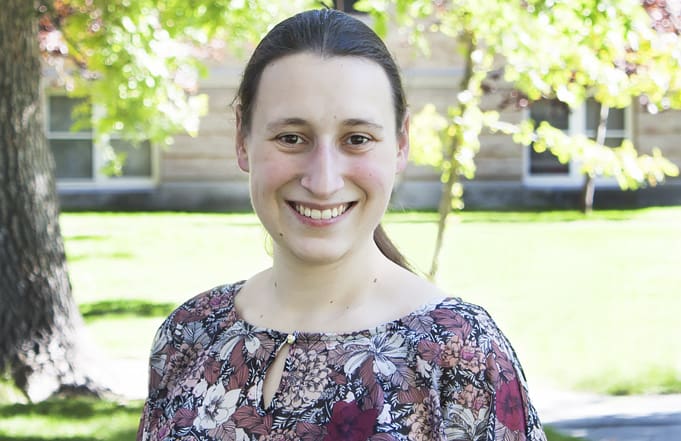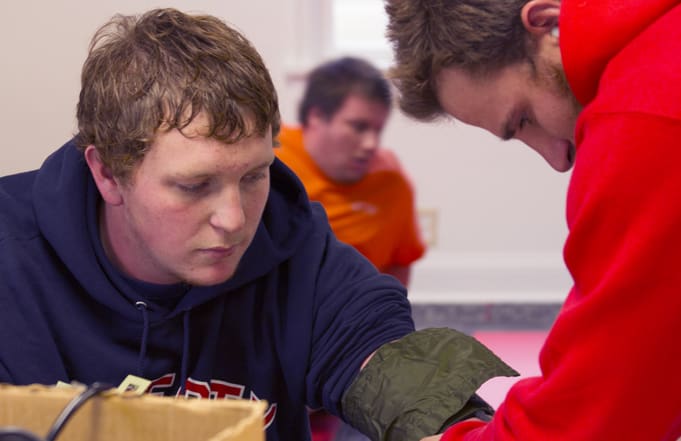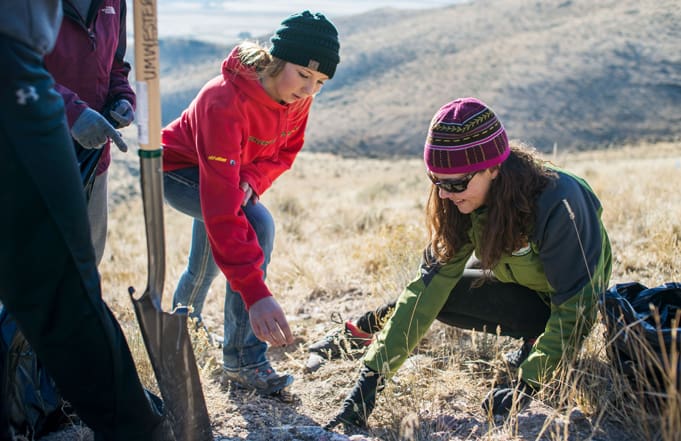November 8, 2017
Students at Montana Western are immersed in hands-on learning experiences. These experiential learning opportunities make up the heart of Experience One, a block scheduling program that allows students to focus on one course at a time for 18 days before moving to the next.
Because of the focused nature of Experience One at Montana Western, the only public four-year institution to offer the program, students are able to learn in the field and in the classroom while building their portfolios for future careers and graduate school applications.
Below are a few examples of how students have engaged in exciting hands-on learning experiences this year, and how their efforts are helping others at the same time.

Psychology Major and University of Montana Western junior Roberta Irvin interned at the University of Pennsylvania over the summer. She worked with the National Institute on Drug Abuse, aiding researchers in their studies on the transmission of HIV.
After hearing of her plans to research the science of substance abuse following graduate school, Psychology Professor Heather Haas sent Irvin applications for the internship with NIDA.
The University of Pennsylvania was Irvin’s first choice out of 30 sites across the country where NIDA employs student interns.
Irvin believes none of this would have been possible without Experience One.
“It’s really nice having the one-on-one time with the professors. I wouldn’t have heard about the internship without that, let alone applied for it,” she said.
During the internship, Irvin performed data entry for various studies, ran blood samples, and attended several conferences. She found the lectures based around substance abuse most interesting.
She hopes to focus her future research on treatment so that she can “make a difference in people’s lives.”
Her work with NIDA will help her stand out when she applies for further education and eventually a career: “This will be good to have on my resume, and it will really help me get into grad school,” Irvin said.

Assistant Professor Laura Young’s Exercise Physiology class had the opportunity to test the health of the Dillon Volunteer Fire Department as their final assignment in Block 1.
The University of Montana Western’s new Health and Human Performance (HHP) Lab has opened its doors to the campus and to the community. In the first weeks of the school year, Montana Western’s HHP students had already utilized the new facility, becoming skilled in administering and supervising fitness test batteries and providing support during the annual fitness testing of the Dillon community’s first responders, including the Dillon Volunteer Fire Department.
The new lab’s metabolic testing capabilities will allow the expansion of key services, provide valuable information to collaborating organizations and individuals, and ensure Montana Western’s students have the skills for continued success in the field of HHP.
The firefighters were evaluated for upper body, core, and grip strength among other tests. They also had their blood pressure and body mass index (BMI) measured.
Professor Young said it was, “a great opportunity to help out the community.”

Assistant Professor Wendy Ridenour’s Biology 101 class recently engaged in a hands-on service learning project.
The students removed invasive weeds and then applied a native seed mix to disturbed areas adjacent to the “M” trail.
The native plant seed mix was selected based upon plant sampling conducted by Ridenour’s Plant Systematics classes over the last two years, and contains native plants including grasses and flowering forbs.
The project is the culmination of over two years of work by three Montana Western Biology classes.
The students in the course were excited to help the community by restoring the plants around the trail system in disturbed areas that allow non-native species to invade the native plant communities.
“We learned a lot about sage steppe ecosystems, and I liked being able to see this project unfold. I can’t wait to see the progress this spring,” said student Anne Alseth.
According to Ridenour, it’s crucial to get students out into the field so they can experience and learn things on a deeper level.
“By being immersed in their local natural surroundings, students are able to more directly apply the knowledge they’ve gained about the roles of native plants and the damage that can be caused by invasive weeds to real-world ecological communities,” she said.
For more information about Experience One and the University of Montana Western, and to schedule a visit, visit www.umwestern.edu or call 877-683-7331.